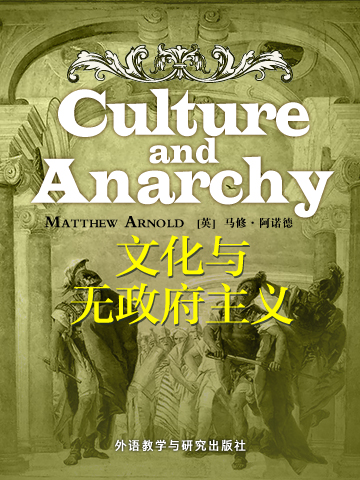文化可代宗教之功用,继续维持社会之和谐。
此书为19世纪后叶英国著名诗人、文学和社会评论家马修·阿诺德的代表作。作者将维多利亚时代的英国人分为野蛮人(贵族)、非利士人(中产阶级)和群氓(平民),抨击了他们的自满、庸俗和拜金主义,倡导以美与智的文化(通过阅读、观察和思考通向天道和神的意旨)来对抗随心所欲、我行我素的个人主义与工业主义所导致的缺乏秩序、准则和方向感的无政府状态,以期实现“文化、人性整体和谐、全面发展的完美",从而确立国家的观念、集体的最优秀的自我,和民族的健全理智。
Matthew Arnold's famous series of essays, which were first published in book form under the title Culture and Anarchy in 1869, debate important questions about the nature of culture and society. Arnold seeks to find out what culture really is, what good it can do, and if it is really necessary. He contrasts culture, which he calls the study of perfection, with anarchy, the mood of unrest and uncertainty that pervaded mid-Victorian England.
- INTRODUCTION
- PREFACE
- CHAPTER I
- CHAPTER II
- CHAPTER III
- CHAPTER IV
- CHAPTER V
- CHAPTER VI
- CONCLUSION
- 书评 写书评
- 笔记
-
书评加载中...






















 京公网安备 11010802032529号
京公网安备 11010802032529号
笔记加载中...